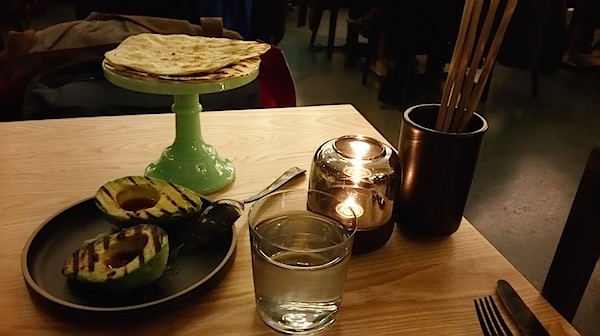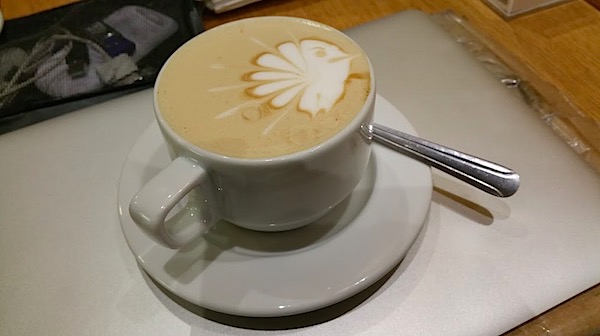
SO, my primary job is working for this big software conglomerate and I want to make sure that I’m doing a good job so a frequent thing that I do is work later on some evenings “just a little bit harder than I want to” but I’ve found that if you do that too long you can burn out and so — GASP — you need a way to stop yourself from doing too much.
My preferred technique, in recent years, is the OpenTable reservation. Later in the day, when I have SOME idea of when I might leave, I log in to OpenTable, set a reservation for one of my favorite restaurants, or a new restaurant, just late enough in the evening to still hit a coffeehouse and get some writing done. I know a few places which are open to 11, so if I can eat by 7:45, I can still get a couple hours of writing in. At worst, even at 8:30, I can get an hour of focus at a coffeehouse — assuming, of course, since I use that dinnertime to do my print reading, an hour for dinner.
Assuming an hour.
So tonight, I tried a new restaurant, Bird Dog in Palo Alto, and showed up 15 minutes early for my 8pm reservation (since I’d not been there before, and wanted a little buffer, and I’d finished my work anyway). They weren’t ready for me, so I sat in the bar, had a daiquiri, and read a chapter out of Peter Higgins’ NUMBERS: A VERY SHORT INTRODUCTION while listening to a very entertaining conversation between some very, very uppercrust ladies who just might have been minor celebrities. At a little after 8:10, the maître d’ came by to tell me a table would be ready soon. I finished the chapter, then pulled out THE EMOTION THESAURUS and started reading it.
At 8:30, I suddenly realized I’d been there three quarters of an hour and had not yet even been seated.
Shoot. Well, that happens. I packed my books up and asked the bartender for the check. He offered to comp me the drink, but I declined (since I was already running way late and thought I could probably get a quick slice at Pizza My Heart to get back on schedule). The waiter asked me to hang on a bit so he could check in at the host stand, and in moments, the maître d’ had arrived to show me to my table.
They comped my drink. They brought me roasted avocado and flatbread, pictured above. And all of the staff came by and apologized. But neither the comping, nor the apologies, were really needed, or were the deciding factor: when a problem was detected, they fixed it. Now, basically they gave me free appetizers and drinks, but I still had an expensive meal, and I’m likely to come back at least once, or to recommend it, or perhaps even blog about it — how meta — so they’ll make their money back.
But what strikes me is that property of noticing a problem and expending a small amount of personal and financial capital to right it had far greater payoffs. They didn’t ignore the problem, or just toss stuff at me to paper it over; they fixed it, they acted sincere, and they delivered the rest of their normal service at high quality. I tried to be super nice in response, and I hope we all had a great meal. Their efforts to provide great customer service changed my attitude about the problem, and built a bond.

Later at Coupa Cafe, one of my favorite coffeehouses, I struck up a conversation with one of the staff, and they recommended a new drink I could try. When I got it, the spectacular presentation of my personally recommended drink again reminded how great customer service doesn’t just have immediate benefits for the business; it creates relationships and attachments which are a perennial source of not just profit to the business — which it does — but of connection in human lives.
And that’s what really makes it all worthwhile. That, and time to work on your books.
-the Centaur